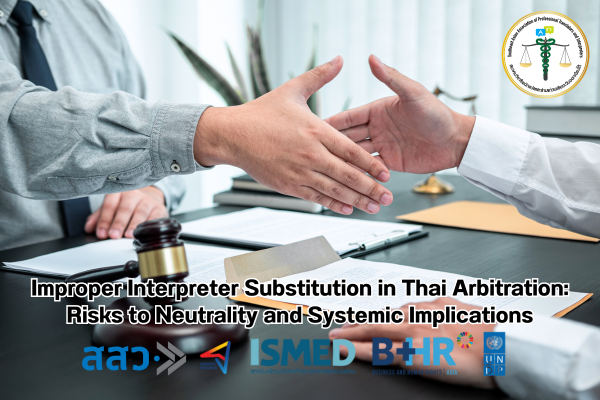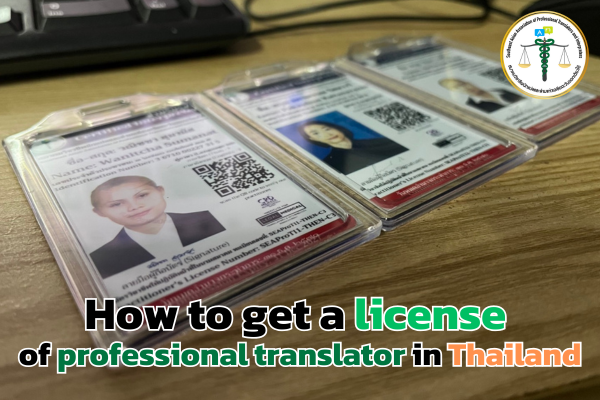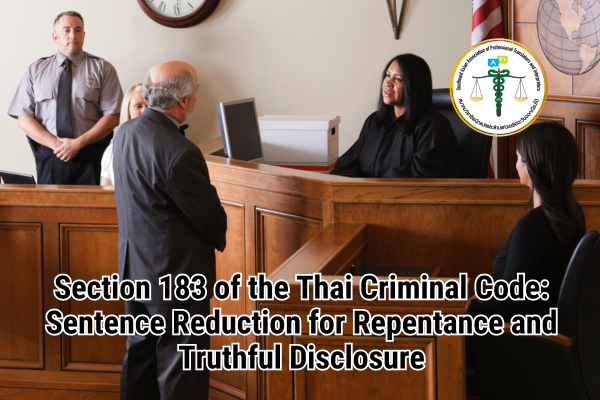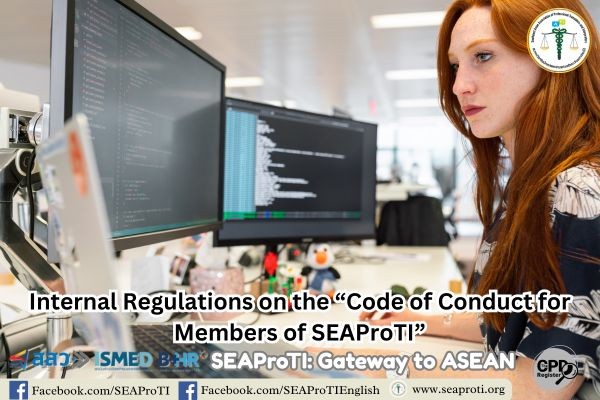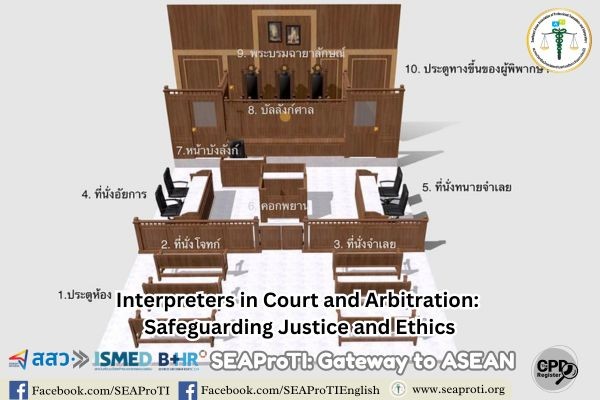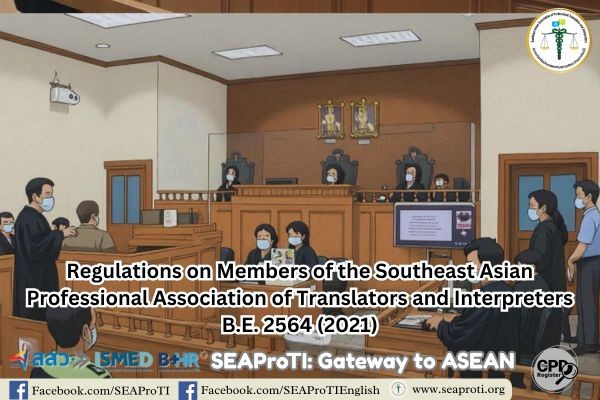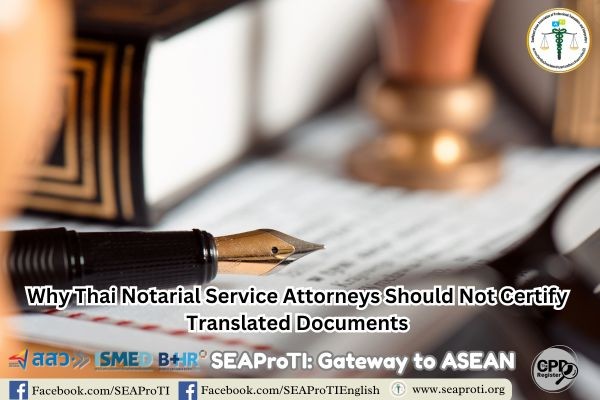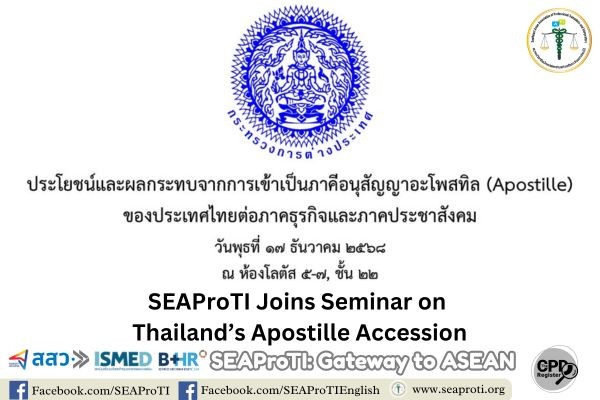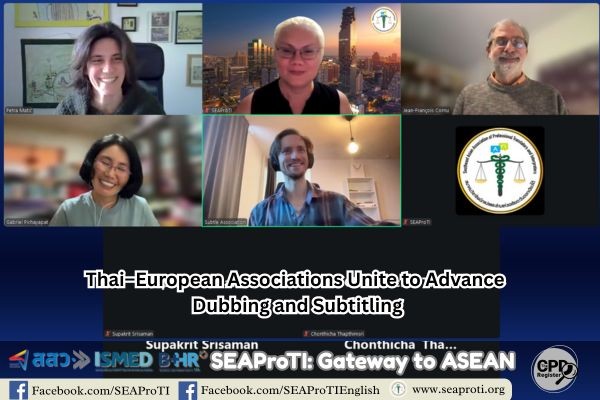Improper Interpreter Substitution in Thai Arbitration: Risks to Neutrality and Systemic Implications
28 June 2025, Bangkok – This article presents a critical analysis of a recurring practice by some Thai arbitrators: the improper substitution of interpreters to control the language and direction of interpretation during arbitral proceedings. Specifically, this involves replacing officially appointed interpreters with attorneys affiliated with one party, thereby compromising the impartiality of the process. The article highlights the ethical conflict, the threat to arbitral neutrality, and the potential for arbitral awards to be annulled by the courts. The analysis is grounded in the UNCITRAL Model Law, IBA Guidelines, and Thailand’s Arbitration Act B.E. 2545 (2002).
Neutrality and Independence as Core Principles
The neutrality and independence of arbitrators are fundamental pillars of arbitration, both domestically and internationally. Violations of these principles undermine the trust of disputing parties and may expose arbitral awards to judicial challenge and annulment.
However, within the Thai arbitration context, there have been reports of conduct that threatens these foundational standards. A concerning tactic is the unilateral replacement of an interpreter appointed by the tribunal, because the interpretation was allegedly “inaccurate,” with the substitution of a lawyer aligned with one of the parties—a person who is not neutral.
The Role of Interpreters in Arbitration: International Standards
Interpreters play a crucial role in facilitating communication between arbitrators and parties, particularly in multilingual proceedings. Their duties include conveying meaning accurately, completely, and neutrally. Any manipulation of their function violates basic procedural principles, such as those found in:
- IBA Guidelines on Party Representation (2013): These prohibit party representatives from acting in a way that compromises the integrity of interpretation.
- UNCITRAL Model Law, Article 18: This guarantees that parties shall be treated equally and given a full opportunity to present their case.
- The Technique of Interpreter Substitution: Hidden Agendas
In certain arbitration proceedings in Thailand—particularly those involving state-affiliated arbitration centers or arbitrators drawn from prominent academic institutions—the following pattern has emerged:
- A duly appointed and sworn interpreter translates proceedings accurately, but not in a manner favorable to one party.
- The arbitrator, aligned with that party, claims the interpretation is “unclear”.;
- The interpreter is then replaced with a lawyer from the favored party, allowing that party to control terminology and the interpretation of factual nuances.
- This tactic is not only ethically improper, but it also violates the principle of procedural fairness, raising serious doubts about the legitimacy of the arbitral process.
Legal Consequences: Grounds for Annulment of Award
Such misconduct may form the basis for judicial annulment of an arbitral award under Thai law. Specifically:
- Section 40(1)(a) of the Arbitration Act B.E. 2545 (2002): An award may be set aside if a party was not given a fair opportunity to present its case;
- Section 19: Arbitrators must act impartially. A party may request the removal of an arbitrator if there are justifiable doubts as to their impartiality.
Relevant Supreme Court Precedent
Supreme Court Decision No. 1283/2560 (2017): The Court ruled that where an arbitrator favored the submission of evidence from one party without affording equal opportunity to the other, the award was invalid due to a violation of procedural equality.
Conclusion and Policy Recommendations
The use of interpreter substitution as a manipulative tool constitutes a severe breach of arbitral ethics and threatens the legitimacy of private adjudication in Thailand. This article recommends:
- Thai arbitration institutions should issue formal rules for interpreter appointment and protections against improper removal.
- IBA Guidelines should be adopted as binding conduct standards for arbitrators and party representatives.
- Mandatory ethics training should be introduced, especially for arbitrators from academia, who are often perceived as authoritative yet unaccountable.
An independent oversight mechanism should be established to investigate complaints and impose sanctions for improper conduct by arbitrators.
References
- UNCITRAL. (2006). UNCITRAL Model Law on International Commercial Arbitration 1985 with amendments as adopted in 2006.
- International Bar Association. (2014). IBA Guidelines on Conflicts of Interest in International Arbitration.
- International Bar Association. (2013). IBA Guidelines on Party Representation in International Arbitration.
- Arbitration Act B.E. 2545 (2002), Kingdom of Thailand.
- Supreme Court of Thailand, Decision No. 1283/2560.
SEAProTI’s certified translators, translation certification providers, and certified interpreters:
The Southeast Asian Association of Professional Translators and Interpreters (SEAProTI) has officially announced the criteria and qualifications for individuals to register as “Certified Translators,” “Translation Certification Providers,” and “Certified Interpreters” under the association’s regulations. These guidelines are detailed in Sections 9 and 10 of the Royal Thai Government Gazette, issued by the Secretariat of the Cabinet under the Office of the Prime Minister of the Kingdom of Thailand, dated July 25, 2024, Volume 141, Part 66 Ng, Page 100.
To read the full publication, visit the Royal Thai Government Gazette
เทคนิคการเปลี่ยนล่ามโดยมิชอบในกระบวนการอนุญาโตตุลาการไทย: ความเสี่ยงต่อความเป็นกลางและผลกระทบเชิงระบบ
28 มิถุนายน 2568, กรุงเทพมหานคร – บทความนี้เสนอการวิเคราะห์เชิงวิพากษ์เกี่ยวกับพฤติกรรมของอนุญาโตตุลาการไทยบางรายที่ใช้ “เทคนิคการเปลี่ยนล่ามโดยมิชอบ” เพื่อควบคุมถ้อยคำและทิศทางของการแปลในกระบวนการพิจารณาข้อพิพาท โดยเฉพาะกรณีที่มีการแทนที่ล่ามที่ได้รับการแต่งตั้งอย่างเป็นทางการด้วยทนายความของฝ่ายใดฝ่ายหนึ่ง บทความชี้ให้เห็นถึงความขัดแย้งทางจริยธรรม ผลกระทบต่อความเป็นกลางของกระบวนการ และความเสี่ยงที่คำชี้ขาดจะถูกเพิกถอนโดยศาลภายหลัง อ้างอิงตามหลักการของ UNCITRAL Model Law, IBA Guidelines และพระราชบัญญัติอนุญาโตตุลาการ พ.ศ. 2545
ความเป็นกลาง (impartiality) และอิสระ (independence) ของอนุญาโตตุลาการเป็นหลักการพื้นฐานของกระบวนการอนุญาโตตุลาการทั้งในระดับประเทศและนานาชาติ การฝ่าฝืนหลักการเหล่านี้ไม่เพียงแต่ทำลายความเชื่อมั่นของคู่ความในกระบวนการเท่านั้น แต่ยังเปิดโอกาสให้คำชี้ขาดของอนุญาโตตุลาการถูกท้าทายและเพิกถอนได้ในภายหลัง
อย่างไรก็ตาม ในเวทีอนุญาโตตุลาการของไทย มีรายงานพฤติกรรมบางประการที่สุ่มเสี่ยงต่อการบ่อนทำลายหลักการดังกล่าว หนึ่งในเทคนิคที่ปรากฏคือการเปลี่ยนล่ามที่ได้รับการแต่งตั้งแล้วโดยอ้างว่า “แปลไม่ถูกต้อง” และแทนที่ด้วย “ทนายความ” ของฝ่ายที่ตนสนับสนุน ซึ่งไม่ใช่บุคคลที่เป็นกลาง
ล่ามในกระบวนการอนุญาโตตุลาการ: บทบาทตามหลักสากล
ล่ามในกระบวนการพิจารณาข้อพิพาทมีบทบาทสำคัญในการถ่ายทอดเนื้อหาระหว่างคู่ความและอนุญาโตตุลาการ โดยต้องรักษาความเป็นกลาง ความถูกต้อง และความครบถ้วนของสาร การแทรกแซงหรือบิดเบือนบทบาทของล่ามขัดต่อหลักการพื้นฐานใน IBA Rules of Evidence และแนวปฏิบัติของสถาบันอนุญาโตตุลาการระหว่างประเทศ เช่น:
- IBA Guidelines on Party Representation (2013) ห้ามทนายความทำหน้าที่แทนล่ามอย่างมีผลต่อเนื้อหาการพิจารณา
- UNCITRAL Model Law Article 18 กำหนดให้คู่ความต้องได้รับการปฏิบัติอย่างเท่าเทียมกัน และได้รับโอกาสในการนำเสนอคดีอย่างเต็มที่ (full opportunity to present his case)
เทคนิคการเปลี่ยนล่าม: วิธีการและวัตถุประสงค์แอบแฝง
ในบางกรณีที่มีการพิจารณาข้อพิพาทในประเทศไทย โดยเฉพาะในสถาบันอนุญาโตตุลาการของรัฐหรือที่มีอนุญาโตตุลาการมาจากภาควิชาการระดับสูง พบว่า:
- เมื่อ “ล่ามที่ได้รับการแต่งตั้งและสาบานตนแล้ว” แปลเนื้อหาตามข้อเท็จจริงอย่างถูกต้องแต่ไม่สอดคล้องกับแนวทางของฝ่ายหนึ่ง
- อนุญาโตตุลาการที่อยู่ในกลุ่มสนับสนุนฝ่ายนั้น อาจอ้างเหตุว่า “ล่ามแปลไม่ชัดเจน”
- จากนั้นเปลี่ยนตัวล่ามเป็น “ทนายความของตนเองหรือของฝ่ายที่ตนสนับสนุน” เพื่อควบคุมถ้อยคำและน้ำหนักของข้อเท็จจริงที่ปรากฏ
- วิธีการเช่นนี้ไม่เพียงเป็นการฝ่าฝืนจริยธรรมของอนุญาโตตุลาการ แต่ยังละเมิดหลัก “procedural fairness” อย่างชัดเจน
ผลกระทบทางกฎหมาย: ความเสี่ยงในการเพิกถอนคำชี้ขาด
การกระทำดังกล่าวอาจเป็นเหตุให้ศาลไทยพิจารณาเพิกถอนคำชี้ขาดของอนุญาโตตุลาการได้ ตาม:
- พระราชบัญญัติอนุญาโตตุลาการ พ.ศ. 2545 มาตรา 40(1)(ก): หากคู่กรณีมิได้รับโอกาสอันเป็นธรรมในการเสนอพยานหลักฐานหรือในการต่อสู้คดี
- มาตรา 19: กำหนดให้อนุญาโตตุลาการต้องเป็นกลาง และคู่กรณีสามารถยื่นคำร้องให้ถอนตัวได้หากมีเหตุอันควรสงสัยว่าขาดความเป็นกลาง
คำพิพากษาศาลฎีกาเกี่ยวข้อง
ฎีกาที่ 1283/2560: ศาลเห็นว่า การที่กรรมการอนุญาโตตุลาการกระทำการที่มีผลต่อความเป็นกลาง เช่น การเลือกใช้พยานเฉพาะฝ่ายหนึ่งโดยมิได้ให้โอกาสอีกฝ่ายเสนอข้อมูล ถือว่าเป็นการละเมิดความเสมอภาคของคู่กรณี อาจทำให้คำชี้ขาดไม่ชอบด้วยกฎหมายได้
บทสรุปและข้อเสนอแนะเชิงนโยบาย
เทคนิคการเปลี่ยนล่ามโดยมิชอบถือเป็นอุบายที่ทำลายหลักความเป็นกลางในกระบวนการยุติธรรมภาคเอกชนอย่างร้ายแรง ผู้เขียนขอเสนอให้:
- สถาบันอนุญาโตตุลาการของไทย กำหนดระเบียบการแต่งตั้งล่ามอย่างเป็นทางการ พร้อมกระบวนการคุ้มครองล่ามจากการแทรกแซงโดยมิชอบ
- ใช้ IBA Guidelines เป็นแนวทางบังคับสำหรับพฤติกรรมของอนุญาโตตุลาการและผู้แทนฝ่ายคู่กรณี
- ส่งเสริมการฝึกอบรมจริยธรรม สำหรับอนุญาโตตุลาการไทย โดยเฉพาะผู้ที่มีตำแหน่งในสถาบันการศึกษา ซึ่งมักได้รับความไว้วางใจทางวิชาการ
- เพิ่มกลไกกำกับดูแลอิสระ เพื่อรับเรื่องร้องเรียนและตรวจสอบพฤติกรรมไม่เหมาะสมของอนุญาโตตุลาการ
บรรณานุกรม
- UNCITRAL. (2006). UNCITRAL Model Law on International Commercial Arbitration 1985 with amendments as adopted in 2006.
- International Bar Association. (2014). IBA Guidelines on Conflicts of Interest in International Arbitration.
- International Bar Association. (2013). IBA Guidelines on Party Representation in International Arbitration.
- พระราชบัญญัติอนุญาโตตุลาการ พ.ศ. 2545.
- คำพิพากษาศาลฎีกาที่ 1283/2560.
เกี่ยวกับนักแปลรับรอง ผู้รับรองการแปล และล่ามรับรองของสมาคมวิชาชีพนักแปลและล่ามแห่งเอเชียตะวันออกเฉียงใต้
สมาคมวิชาชีพนักแปลและล่ามแห่งเอเชียตะวันออกเฉียงใต้ (SEAProTI) ได้ประกาศหลักเกณฑ์และคุณสมบัติผู้ที่ขึ้นทะเบียนเป็น “นักแปลรับรอง (Certified Translators) และผู้รับรองการแปล (Translation Certification Providers) และล่ามรับรอง (Certified Interpreters)” ของสมาคม หมวดที่ 9 และหมวดที่ 10 ในราชกิจจานุเบกษา ของสำนักเลขาธิการคณะรัฐมนตรี ในสำนักนายกรัฐมนตรี แห่งราชอาณาจักรไทย ลงวันที่ 25 ก.ค. 2567 เล่มที่ 141 ตอนที่ 66 ง หน้า 100 อ่านฉบับเต็มได้ที่: นักแปลรับรอง ผู้รับรองการแปล และล่ามรับรอง


